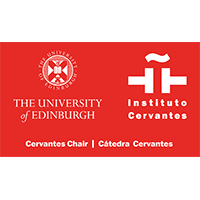Interview with Luis Ordóñez, director of “25 Years After”
Although Jaime Gil de Biedma is an essential in Spain, he’s not a well-recognised outside his country. How would you introduce him to a British audience?
Jaime belonged to the Generation of the 1950s, when social poetry was written in Spain. But after studying in Oxford and discovering British poets, he moved into the “poetry of the experience” (term coined by Robert Langbaum), where the poet puts on a mask to look at the poem and transforms it into his own experience.
His output was extremely brief. Why?
Every time Jaime was asked about this, he used to say that not-writing was the norm. Also, in his forties, he felt it was too much like doing his school homework when he tried to write. I think he stopped writing as he got tired of the poetic discourse and became exhausted by it perhaps. However, his brief output has been one of the most influential in the second half of the Spanish twentieth century, and many critics and scholars point to his influence on other poets.
His life was very varied: a sales representative for a tobacco company, which took him all over the world; openly gay and promiscuous; victim of AIDS; a communist who was born into a very conservative family… Which approach have you chosen?
None of them. The documentary is an immersion into his poetic universe through the voices of those who knew him and others who are great admirers of his work. His “novelesque” life has already been adapted for the silver screen, quite unsuccessfully in my opinion, so I am part of that chorus of people, which includes novelist Juan Marsé, literary agent Carmen Balcells, critic and publisher Andreu Jaume, who reject it. The content of this documentary is completely “artistic”, simply because his poetic work and its influence on Spanish poetry had never been shown on an audiovisual media until now.
Enjoy 25 Years After on 5th October at 5pm. This is a FREE EVENT at the University of Edinburgh. More information here.

















